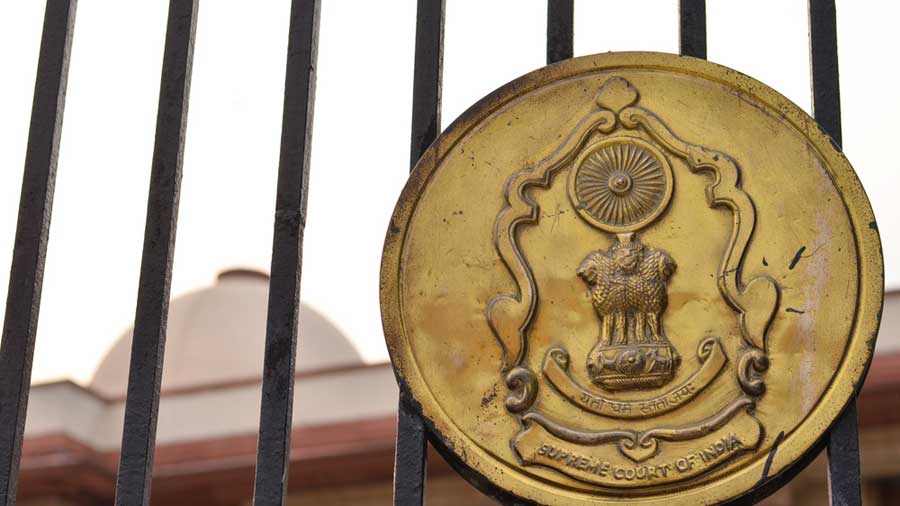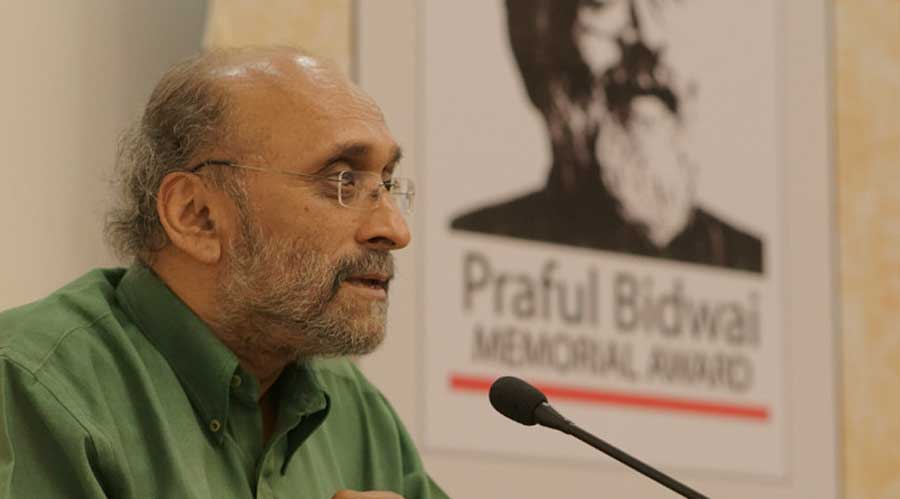The Editors Guild of India and a senior journalist on Tuesday jointly moved the Supreme Court seeking a directive to the Centre to disclose information on the electronic surveillance of Indian citizens using spyware.
They have also demanded a court-monitored probe into allegations swirling around the Pegasus controversy, adding to the list of people approaching the Supreme Court on the issue.
“The indiscriminate use of these capabilities against journalists and other democratic actors destroys freedom of speech and poisons the heart of democratic accountability,” the petition said.
The Guild and veteran journalist Mrinal Pande have challenged the constitutional validity of Section 5 of the Indian Telegraph Act, 1885, Rule 419A of the Indian Telegraph Rules, 1951, Section 69 of the Information Technology Act, 2000, and the Information Technology (Procedure and Safeguards for Interception, Monitoring and Decryption of Information) Rules, 2009.
These provisions permit the government to intercept the electronic devices of citizens subject to various safeguards.
The Narendra Modi government has so far resisted the Opposition’s demand to discuss the issue in Parliament and refused to acknowledge or deny whether it had bought the Pegasus software which can only be accessed by governments or government-run agencies.
The petition, filed through advocate Lzafeer Ahmad, has asked if the Centre or any of its agencies had procured, licensed or obtained Pegasus from the Israeli NSO Group or its group companies or affiliates and used it to spy on Indian citizens, including journalists.
The petitioners sought the following directives from the Supreme Court:
⚫ Direct the Centre to produce any contracts, agreements or memoranda of understanding with foreign companies for supplying spyware, hacking or electronic surveillance tools for use on Indian citizens.
⚫ Order the government to disclose the details of how such spyware, hacking or electronic surveillance tools were paid for.
⚫ Direct the Union of India to disclose the details of the list of people who have been under electronic surveillance or have been subjected to hacking or spying. The government should also be asked to furnish the details of who prepared the list.
⚫ Direct the Centre to reveal how many of the Indian citizens who have been under electronic surveillance or have been subjected to hacking have been charged with involvement in serious crimes.
⚫ An independent special investigation team (SIT) should be set up to probe the alleged procurement and use of Pegasus.
The petitioners argued that the alleged snooping was a serious assault on the freedom of the media, free speech and citizens’ right to life and liberty, besides being a criminal offence.
Earlier, advocate M.L. Sharma, CPM Rajya Sabha MP John Brittas and journalists N. Ram, Sashi Kumar, Paranjoy Guha Thakurta and Rupesh Kumar Singh had moved the top court. The petitions are expected to come up for hearing on Thursday before a bench of Chief Justice of India N.V. Ramana and Justice Surya Kant.
“Pegasus is capable of astronomical surveillance which includes accessing every bit of stored data on one’s phone; real time access to emails, texts, phone calls; controlling all cameras on the device; activating the sound recording function; transmitting all sounds in the vicinity of the device; detecting whether two phones have come in physical proximity; activating features even when the phone is switched off, and more,” the Guild’s petition said.
“In the face of the NSO Group’s stated position that it only sells to ‘vetted governments’, these allegations of spying raise grave concerns of abuse of office; dismantling of separation of power; infringement of fundamental rights to privacy, freedom of speech and expression, and freedom of the press; subversion of the democratic process; and commission of serious criminal offences,” the petition added.
“The Pegasus cyber attacks, prima facie, disclose the commission of several serious offences under the Information Technology Act, 2000; the Indian Penal Code, 1860; the Indian Telegraph Act, 1885; and the Official Secrets Act, 1923. Journalists are tasked with enforcing the public’s right to be informed, to accountability, and to open and transparent government.
“The petitioner’s members and all journalists have the duty in our democracy of holding all branches of government accountable by seeking information, explanations and constitutionally valid justifications for state action and inaction,” the petition said.
According to the petitioners, freedom of the press relies on non-interference by the government and its agencies in reporting by journalists, including their ability to securely and confidentially speak with sources, investigate abuse of power and corruption, expose government incompetence, and communicate with those opposed to the dispensation.
“The citizens of India have a right to know if the executive government is infringing the limits of their authority under the Constitution and what steps have been taken to safeguard their fundamental rights,” the petition said.
“The petitioners are before this Hon’ble Court to seek the enforcement of this right, in performance of their obligations as trustees of the public, and on behalf of all citizens of India.
“It is regretfully submitted that all attempts to seek accountability and enforce constitutional limits through parliamentary processes have been stonewalled. Through their intransigence, the respondents (the Union government and its instrumentalities) have deliberately avoided public debate on this issue and have provided obfuscated answers, forcing the petitioner to approach this Hon’ble Court,” it added.
The petition continued: “The petitioners also seek a court-appointed special investigation team monitored by this Hon’ble Court to investigate every aspect of the use of Pegasus by the Government of India and against Indian citizens, especially journalists. Finally, the petitioners have challenged the constitutional vires of electronic surveillance, hacking and use of spyware, and the existing legal architecture for surveillance, in light of the gigantic leaps in technology and surveillance capabilities.”











